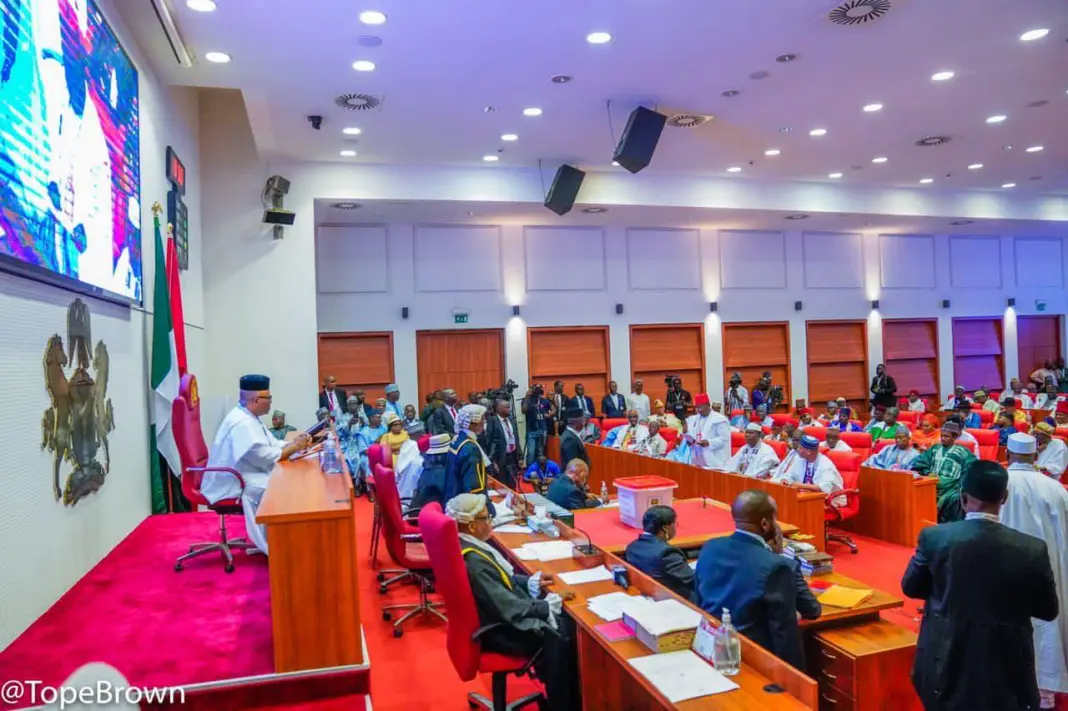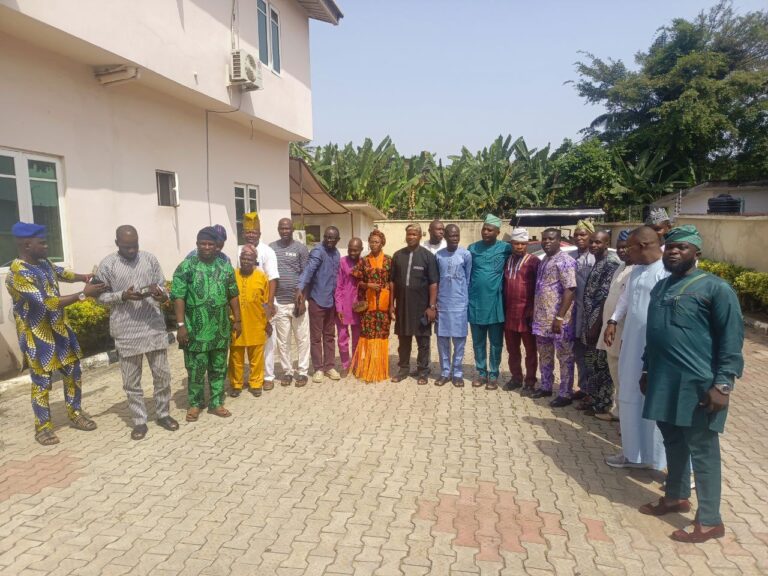
The Nigerian Senate on Wednesday initiated a far-reaching investigation into the alarming proliferation of Ponzi schemes in the country, following the catastrophic collapse of Crypto Bridge Exchange (CBEX)—a digital investment platform that allegedly defrauded Nigerians of over ₦1.3 trillion in what is now considered one of the largest financial scams in the nation’s history.
The upper legislative chamber, during its plenary session, expressed unanimous support for a motion co-sponsored by Senator Tokunbo Abiru (Lagos East) and Senator Osita Izunaso (Imo West). Lawmakers across party lines condemned what they described as systemic regulatory failures and financial oversight lapses that have allowed fraudulent digital investment schemes to thrive unchecked.
Presenting the motion, Senator Abiru detailed how CBEX exploited weaknesses in regulatory enforcement and inter-agency coordination, particularly citing the Central Bank of Nigeria (CBN), Securities and Exchange Commission (SEC), Nigerian Financial Intelligence Unit (NFIU), and the Economic and Financial Crimes Commission (EFCC). He warned that CBEX is only the latest in a growing pattern of sophisticated Ponzi operations exploiting Nigeria’s financial system and digital space.
“Over ₦1.3 trillion was lost to CBEX alone,” Abiru stated solemnly. “This is not an isolated case. It is part of a disturbing trend dating back to MMM in 2016, MBA Forex in 2020, and several other platforms that have exploited Nigerians’ trust and financial desperation.”
He emphasized the devastating fallout of such scams, noting an increase in cases of depression, family disintegration, suicides, and public mistrust in legitimate financial institutions.
Several lawmakers rose to back the motion, describing the situation as a national emergency. Senator Tahir Monguno (Borno North) called the matter “alarming” and stressed the need for urgent legislative intervention.
“We must strengthen our laws and ensure offenders face the full weight of justice. Enough is enough,” Monguno declared.
Senator Sadiq Umar (Kwara North) lamented the failure of the institutions tasked with protecting citizens. “Regulatory bodies must wake up. People trust them to act—not to sleep,” he said.
Senator Solomon Adeola (Ogun West) expanded the debate, noting that the issue extends beyond classic Ponzi schemes to a growing wave of unlicensed fintech companies operating under the guise of innovation, but without regulatory scrutiny.
“We’re now seeing a new front of financial abuse—unregulated fintech startups taking advantage of the digital boom. The CBN must clarify what safeguards are in place and how many of these platforms have undergone proper vetting,” Adeola said.
Senator Abdul Ningi (Bauchi Central) called on the National Assembly to invoke its constitutional powers under Sections 88 and 14 of the 1999 Constitution to compel transparency and accountability from regulatory agencies. He urged his colleagues not to wait for further public outrage before acting decisively.
In a rare moment of personal reflection, Senate President Godswill Akpabio revealed that he himself had once fallen victim to a Ponzi scheme in Port Harcourt in the 1990s. “History is repeating itself, only now with even more devastating consequences,” Akpabio said. “₦1.3 trillion—just like that. Families have been ruined. Lives have been lost. This is an emergency. We must act swiftly and decisively.”
Akpabio backed calls for public investigative hearings and nationwide financial literacy campaigns, stressing the need to protect vulnerable citizens and restore faith in the financial system.
“We cannot sit back while Nigerians are being robbed blind. We must act to prevent more suicides, restore trust, and reclaim our economy from digital predators,” he said.
The Senate resolved to launch a multi-committee investigation into CBEX and other Ponzi-like schemes operating within Nigeria’s rapidly expanding digital financial space. The probe will be conducted jointly by the Committees on: Capital Market, Banking, Insurance and Other Financial Institutions, Anti-Corruption and Financial Crimes, ICT and Cybersecurity.
The lead committee has been mandated to conduct public hearings, gather testimonies from victims, financial regulators, and digital platform operators, and submit a comprehensive report within four weeks.
According to the resolution, the investigation will not be limited to CBEX but will cast a wide net across the Nigerian fintech landscape to uncover regulatory gaps, identify bad actors, and propose sweeping reforms aimed at protecting the investing public.






